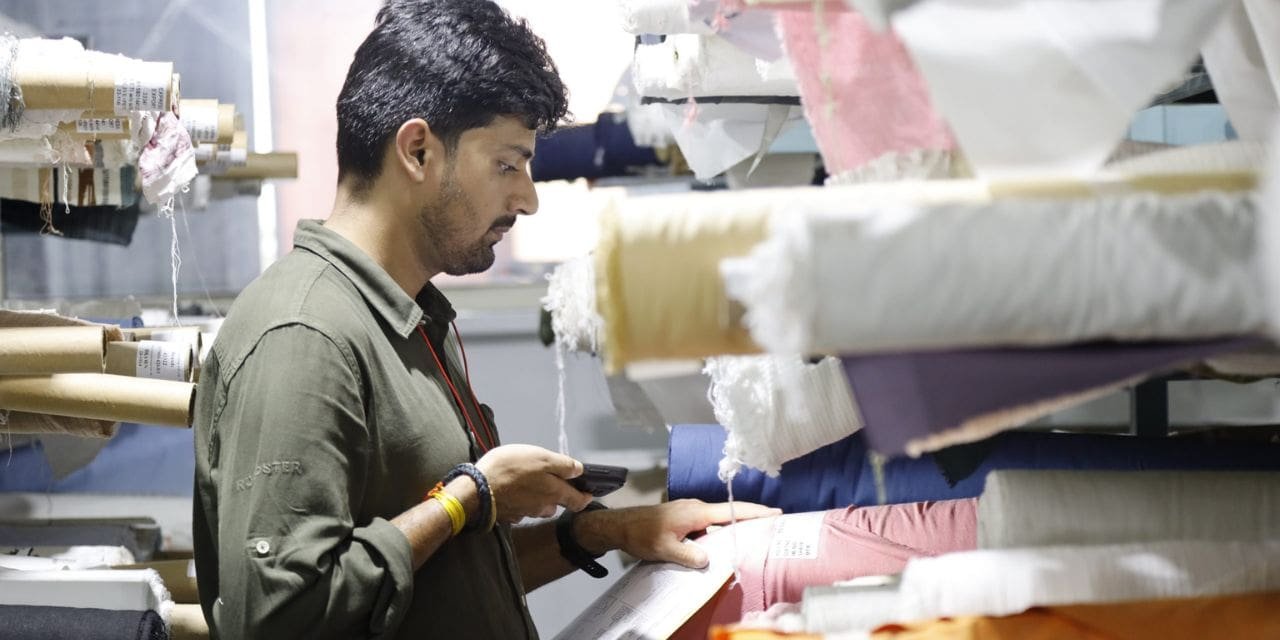The journey of every piece of fashion clothing begins with sourcing the right textile. This involves sifting through swatches of voile, denim, velvet and more to find just the right weave, thickness, colour, stitch and so on. For a major textile producer like Arvind, with its global client roster of high street brands, the number of samples in their warehouses can run into the millions.
And, when a client returns with a request for a weave made for them, say, a decade ago, the team, in an ideal world, should be able to dig into the samples to find that exact match.
“The entire process was time-consuming, and personnel-intensive,” Nitin Parmar, CIO at Arvind said, “And because it was manual it was highly prone to information loss and errors. This had direct financial impact on the business because we would often miss our deadline to the customer.”
For decades, this work was done on sheets of paper. But as the business grew, so did the complexity. As it turned out, one of their biggest pain points would be resolved in a day with Power Apps, a low-code app development platform from Microsoft. This is the story of how a nearly 100-year-old textile company in India is ushering an industry steeped in tradition into the digital era.
Founded in 1931, Arvind is one of India’s oldest textile companies with a revenue of over USD1 billion and more than 25,000 employees. Its sprawling manufacturing facilities in Gujarat, a state in western India, now supply fabrics for the global brands that line high streets from New York to Singapore.
For decades, this work was done on sheets of paper. But as the business grew, so did the complexity. As it turned out, one of their biggest pain points would be resolved in a day with Power Apps, a low-code app development platform from Microsoft.
This is the story of how a nearly 100-year-old textile company in India is ushering an industry steeped in tradition into the digital era.
Founded in 1931, Arvind is one of India’s oldest textile companies with a revenue of over USD1 billion and more than 25,000 employees. Its sprawling manufacturing facilities in Gujarat, a state in western India, now supply fabrics for the global brands that line high streets from New York to Singapore.
“For this there was a need for a lot of traceability in how a product would get made and manufacturers were required to produce a lot of evidence,” Parmar said. “This isn’t possible when your systems are manual. Which is when a lot of ERP came to be put in place.”
Migrating to Azure, Microsoft’s cloud service, and implementing Dynamics 365 CRM were the first steps, and helped marketing connect with customers. Next came the factory floor.
The sampling department of Arvind in particular plays a crucial role in bagging clients and keep them coming for more. It not only serves as a repository of all the fabric samples that the company has ever made, it also serves as a giant catalogue for future sales.
But up until last year, the process was archaic. Papers with details of orders would get lost, leading to wrong specifications and other errors. With no central sample library, the company would end up recreating samples they already had, wasting time and fabric. It was nearly impossible to track the status of any order in real-time, leading to poor customer experience.
That was the challenge Parmar and his team placed before Bitscape, an Ahmedabad-based consulting firm and Microsoft partner, when they participated in an “App in a Day” workshop last year.
Think of these workshops as speed dating sessions where customers can get prototype of apps to solve specific problems using Microsoft Power Apps. During the workshop, the Bitscape team created a working proof of concept to digitize the entire sampling process.
“At Bitscape, we’ve always believed in the power of technology to transform,” said Kartik Shah, chief executive of Bitscape. “With Power Apps and its integrated AI capabilities, we’re not just simplifying processes – we’re enabling smarter decisions, faster results, and true digital empowerment for our clients.”
The solution, which runs on both PCs and smartphones, creates a QR code for every sampling order that the marketing team receives. The code is mapped to the existing CRM entry for the order, which has all the details of textile specifications, timelines, and others.
Unlike earlier, when sheets of papers were passed from the marketing to design to the production floor that led to information loss and delays, a simple scan of the QR code now tells them what needs to be done and move it forward to the next team. Every move is updated on the CRM, so the marketing team can track the status of the order and remove roadblocks.
Crucially, workers on the production floor can now refer to the exact specification for every order, reducing errors and fabric wastage.
The team also started a digital sample library, which has so far amassed details of more than 40,000 samples since Power Apps was deployed in October last year. The marketing team can now quickly see if there’s a match, before going through the entire design and production process for each client request.
Most importantly, it’s easy to use. Raju Patni, a marketing manager and self-described non-tech savvy employee, has been with Arvind for quarter of a century. “The gadget I use the most is a mobile phone,” he says in Hindi, “This is just like that.”
Since implementing Microsoft Power Apps in October 2022, according to Parmar, human errors in sampling are down by 90 percent, production errors by 70 percent, and the turnaround time for orders is as much as 30 percent shorter.
His team is now looking at more uses for Power Apps, such as creating a portal for vendors to submit bids for contracts, as well as streamlining the cotton purchasing process.

